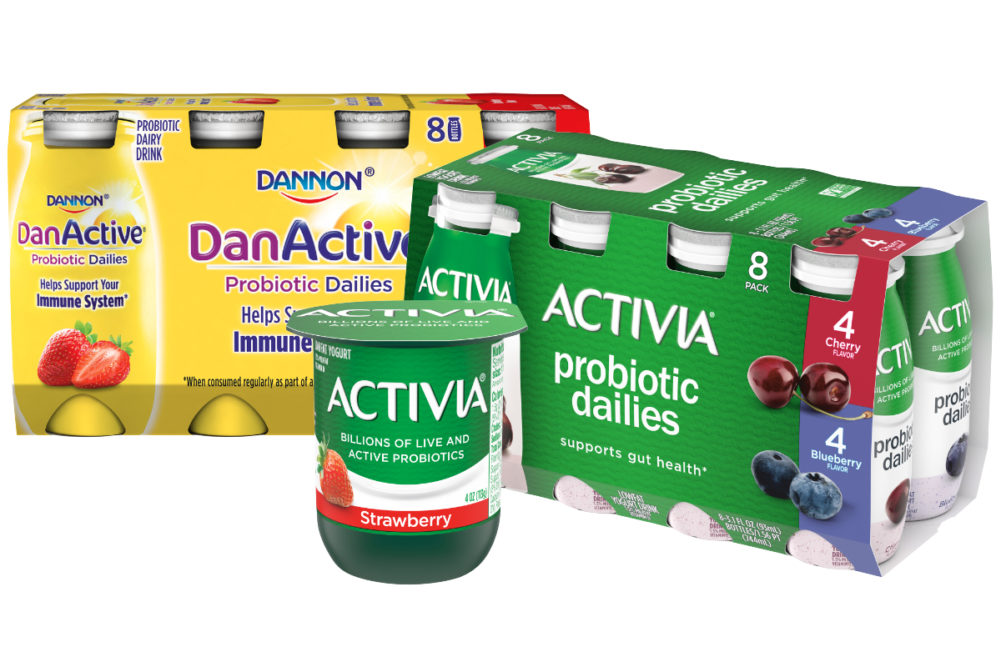 CHICAGO — Immunity has become the buzzword of the health and wellness community since the beginning of the COVID-19 pandemic, leading many trend forecasts to identify it as one of the most sought-after functional traits in foods and beverages. Specifically, probiotics are among the most desired ingredients consumers are looking to increase in their diet. This has a growing number of researchers turning their attention to the role of probiotics in helping support immune health, including the connection to COVID-19, in efforts to substantiate their purported benefits.
CHICAGO — Immunity has become the buzzword of the health and wellness community since the beginning of the COVID-19 pandemic, leading many trend forecasts to identify it as one of the most sought-after functional traits in foods and beverages. Specifically, probiotics are among the most desired ingredients consumers are looking to increase in their diet. This has a growing number of researchers turning their attention to the role of probiotics in helping support immune health, including the connection to COVID-19, in efforts to substantiate their purported benefits.
Danone North America, White Plains, NY, a business unit of Danone SA, Paris, is funding a study currently underway at Rutgers University, New Brunswick, NJ, that explores the potential connection between the microbiome and COVID-19. Danone has been studying probiotics, gut health and the microbiome for more than 100 years. The company’s portfolio of dairy- and plant-based fermented foods is at the core of its health strategy.
The Rutgers research follows a study that recently came out of China suggesting that the imbalance of gut microbes may increase the chance of developing more severe COVID-19 symptoms and may put people at a higher risk of the post-viral syndrome known as “long COVID.” The researchers found that patients with COVID-19 were depleted in three types of gut bacteria with known immunomodulatory potential, including Faecalibacterium prausnitzii, Eubacterium rectale and several bifidobacterial species.
“Bifidobacterium species are one of the most studied probiotic species,” said Miguel Freitas, PhD, vice president of scientific affairs at Danone North America.
Many of the studies have been conducted by Danone, as the company’s Activia brand contains a signature strain (Bifidobacterium animalis lactis DN-173 010/CNCM I-2494). The Bifidus culture was specifically selected because of its ability to survive passage through the digestive system and reach the large intestine in sufficient amounts. The company includes the probiotic Lactobacillus casei DN-114 001 in its DanActive line of fermented products. To date, Danone has funded 48 clinical trials on gut health and probiotics and has two dedicated research facilities that employ more than 1,700 scientists. Now the company is supporting the Rutgers cohort study.
“Our products are not used in this study,” Dr. Freitas said. “This pioneering study aims to determine if the human microbiome can predict the severity of COVID-19.”
The clinical investigation is being led by Martin Blaser, MD, director of the center for advanced biotechnology and medicine, and professor of medicine and microbiology at Rutgers. His team is exploring if the health of the gut microbiome may be an overlooked or unexplained factor in why people respond differently to COVID-19.
“Our hypothesis is that the health of the microbiome prior to COVID-19 infection is a predictor of the severity of COVID-19,” Dr. Blaser said. “There’s already evidence that the microbiome can make a difference.
“We understand how the virus that causes COVID-19 (SARS-CoV-2) enters cells and the mucosa and the gastrointestinal tract and has to bind to ACE-2 receptors. Molecules on the surface of these cells can inhibit the binding. The bacteria in the mucosa can have enzymes that cleave these molecules and thus affect susceptibility to invasion by the virus.”
The Rutgers study is on health care workers exposed to COVID-19. The 850 participants, including 10% that have already tested positive for coronavirus, were followed for six months. The researchers started collecting samples in late March and currently have more than 2,500 specimens from health care workers that were taken before, during and after infection. They plan to have the study completed by mid-2021.
“The key was to study people before they got infected,” Dr. Blaser said. “We hope this leads to COVID-19 management strategies, including treatment and prevention through dietary intervention.”
Dietary interventions may include changing the microbiome in a favorable way through the consumption of probiotics and prebiotics. That’s why one of the goals of the study is to understand what is happening in the microbiome to determine the possibility of harnessing some of those organisms as new probiotics or look at the metabolites to develop a pre- and probiotic strategy.
“Although further investigation is needed, understanding how probiotics and prebiotics work in our body can give us additional insights on new approaches to manage COVID-19,” Dr. Freitas said. “It’s amazing to witness the progress that has been made in this space. In fact, when I arrived in the US in 2004, the American understanding and knowledge of the benefits of ‘good’ bacteria was extremely limited. This was driven by the belief that an ‘anti-bacterial’ and ‘sterile’ environment was always preferable for health.”
With the launch of Activia in 2006, and other education efforts on probiotics in the US, Americans slowly started gaining a better understanding of probiotics. The pandemic accelerated their curiosity.
“Fast-forward to today and probiotics are expected to reach $65 billion by 2024,” Dr. Freitas said. “Even though probiotics and prebiotics are among the biggest trends in functional foods, not all of these products are created equal. I would encourage everyone to do their own quick science check to make sure that their choice of probiotics has been studied by credible experts.”





